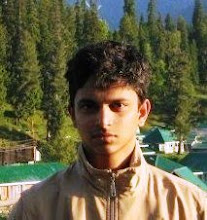Nigel Britto
In an outdoor amphitheatre on a cold Wednesday evening, Lou Majaw strums classic rock tunes on his electric guitar-the soothing, Dylanesque kind that have been lost in time. They present a refreshing change from the cacophonous beats that fill the air every December night in Goa.
Born and bred in the rolling hills of Meghalaya, Majaw is Shillong's original rock star. Closing the Goa Arts and Literary Festival, the Dylan nut, clad in a vest and very short shorts with a guitar and a bag slung over his shoulders, wasn't the only person who didn't conform to the norm.
One of the many joys of the small yet elegant festival was the deliberate exclusion of staples-there were no Chetan Bhagats and Suhel Seths floating around.
"I'm impressed by the choice of participants and the fact that it didn't go mainstream," Bilal Tanweer, a Lahore-based social scientist and the only delegate from Pakistan, told TOI.
Instead, the five-day event was a celebration of great works by lesser-known writers. It gave pride of place to locals, and uniquely, also featured several writers, poets and musicians from the north-east, that oft-ignored part of India that usually comes into the national consciousness only in the event of some unpleasant occurence there.
The festival conjured up a finely balanced cocktail of both the ingredients that are usually characteristics of a successful literature festival-scholarship and performance, although some argued that a third- scheduling-was in short supply.
While veterans such as Gulzar, Amitav Ghosh and Kiran Nagarkar were the star draws for panel discussions and book-signings, the walls that separate a writer from his reader were slowly chipped away as the festival progressed; by the final day, most attendees, by now familiar with their fellow-delegates, pleasantly greeted each other in a friendly manner of camaraderie consistent with the spirit of the host state.
Informality aside, another highlight of the festival was the spotlight on the younger brigade, led by three writers who stood out throughout the festival. Their works comprise long, hard looks at the cities they've lived in.
Nigerian-American novelist Teju Cole wrote 'Open City', about an African psychiatry resident who takes long walks around New York City. It has been listed as one of Time magazine's top-10 fiction books of the year. Sonia Faleiro's 'Beautiful Thing', which takes a look at Mumbai through the lens of a bar dancer, is a formidable work of narrative journalism and its title regularly features in several international best-of lists.
Naresh Fernandes's 'Taj Mahal Foxtrot-The Story of Bombay's Jazz Age', though released at the festival, is already being looked at as a significant chronicle of the city through the perspective of the defining musical genre of that era. During their sessions, Cole, Faleiro and Fernandes exhibited extraordinary mastery of their material, presenting it in a way that held captive the fickle attention of the small, scattered audience.
While the audience size was cause of bother for some, most took it in their stride-Majaw, for instance, whose concert attracted a princely 40 people. "It's not a rock concert. It's a literature festival, with its niche audience," he says. Vivek Menezes, the festival's organizer, concurred. "The attendance was predictable, considering the number of events in Goa happening simultaneously. But we're happy with the line-up. We had a few writers of the moment here."
With men of caliber such as Shehan Karunatilaka, author of the outstanding 'Chinaman', and Sudhir Kakar, who just won Germany's highest civilian honour, as participants, Menezes can hardly be faulted for saying so.
But Anjum Hasan, the Shillong-born author of 'Lunatic in my Head', expressed disappointment with the surprising absence of youth. "I intended to reach out to younger audiences. I got may be 50% of that," she said.
Small crowds, along with the rescheduling of a few panels, were the common grouse of most attendees. But Hasan was quick to add, "The festival was not small in terms of the line-up. I met several people who I've read but never met in person before." Karunatilaka, too, says he found the panels "very interesting", adding that "the Goa coast is very similar to the Sri Lanka coast, where my work is based".
However, the festival was far more than just literature. A play by Isabel de Santa Rita Vas, staged on Liberation Day, was highly-appreciated, as was an electrifying session by artist extraordinaire Atul Dodiya; New York rapper Himanshu Suri of 'Das Racist', who had a fiery session with American editorial whizkid Jonathan Shainin, also broke out into an impromptu rap in another session with Teju Cole, moderated by TOI's former art critic Ranjit Hoskote, who is now a prominent poet. "It was great spending so much time meeting with and talking to writers," Suri told TOI. "Now, I'd definitely want to write more."
But perhaps the most inspired participant was the Khasi rocker Majaw himself. Originally scheduled to perform only on the first day of the festival, the musician enthusiastically attended almost every session. He then wanted to play again on the last day, "out of love", and he did, thus closing the curtains on the festival as well as having the final word. "This was a beautiful gathering and my experience in Goa was truly enriching," he told TOI. "I will go home energized."
This article was first published on The Times of India's Goa edition dated December 23, 2011.

No comments:
Post a Comment